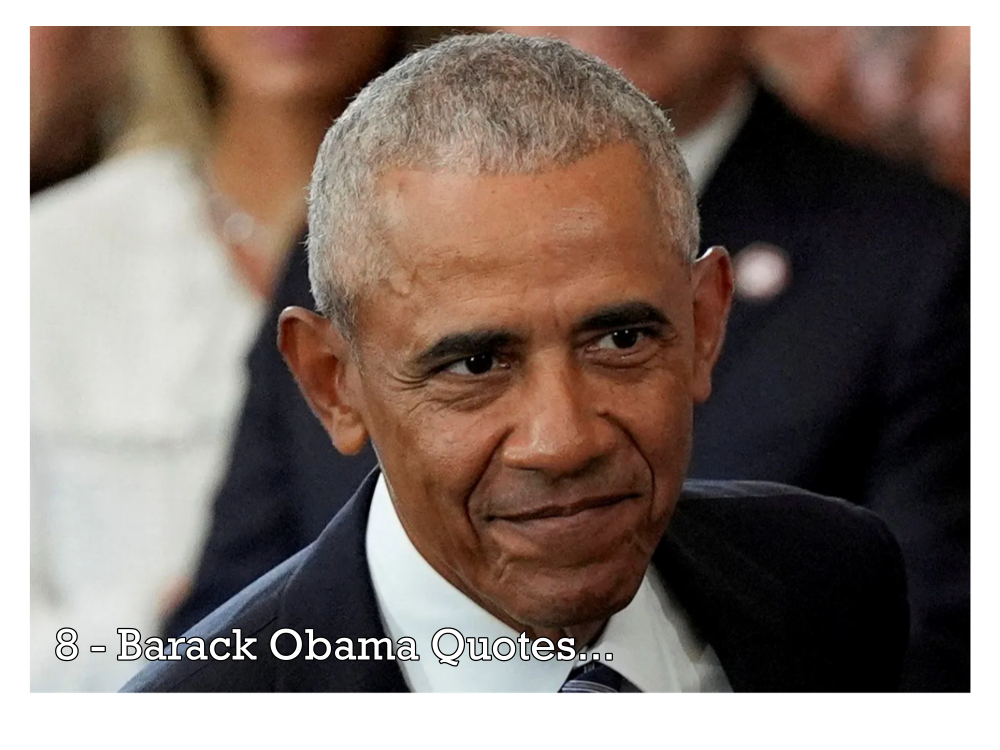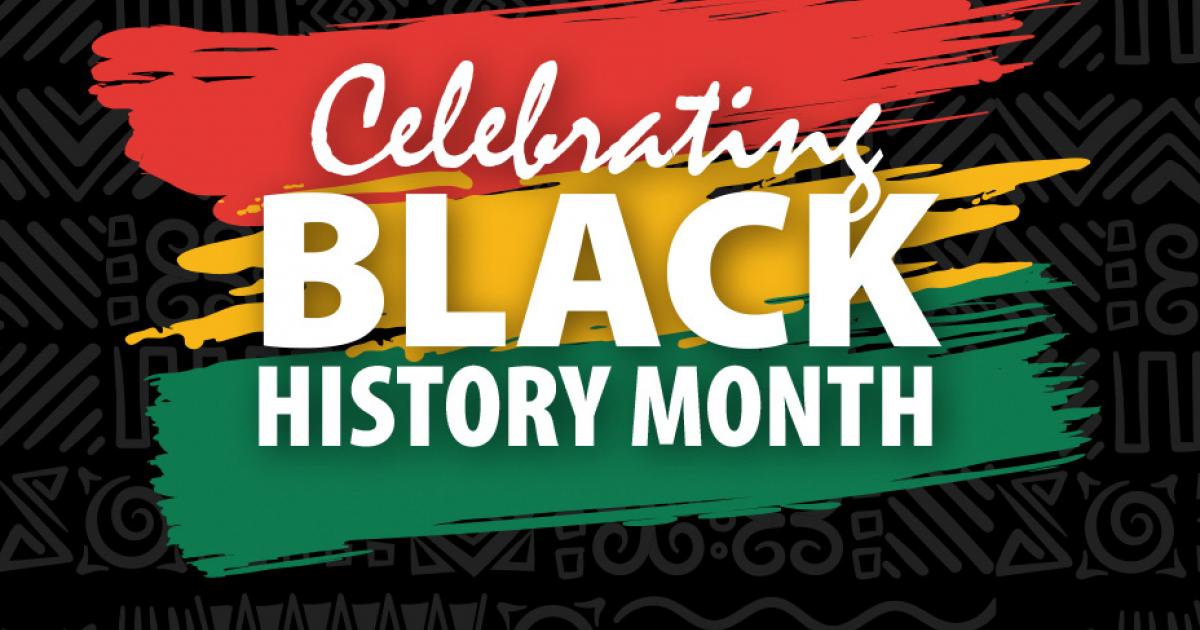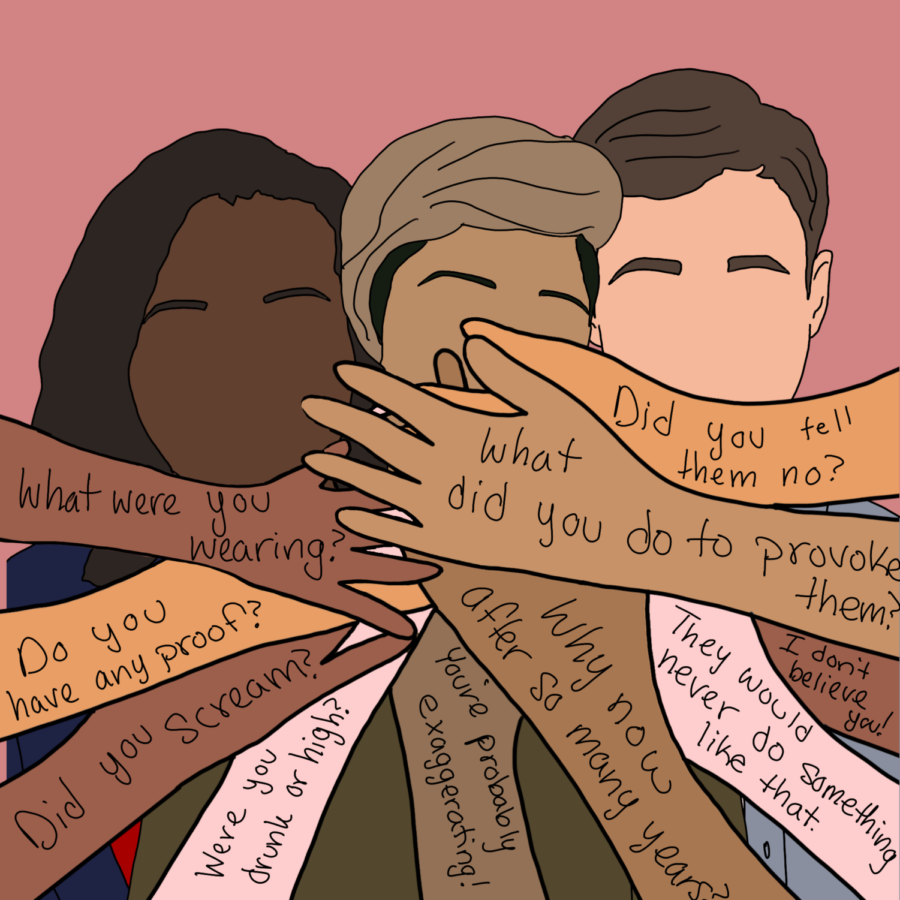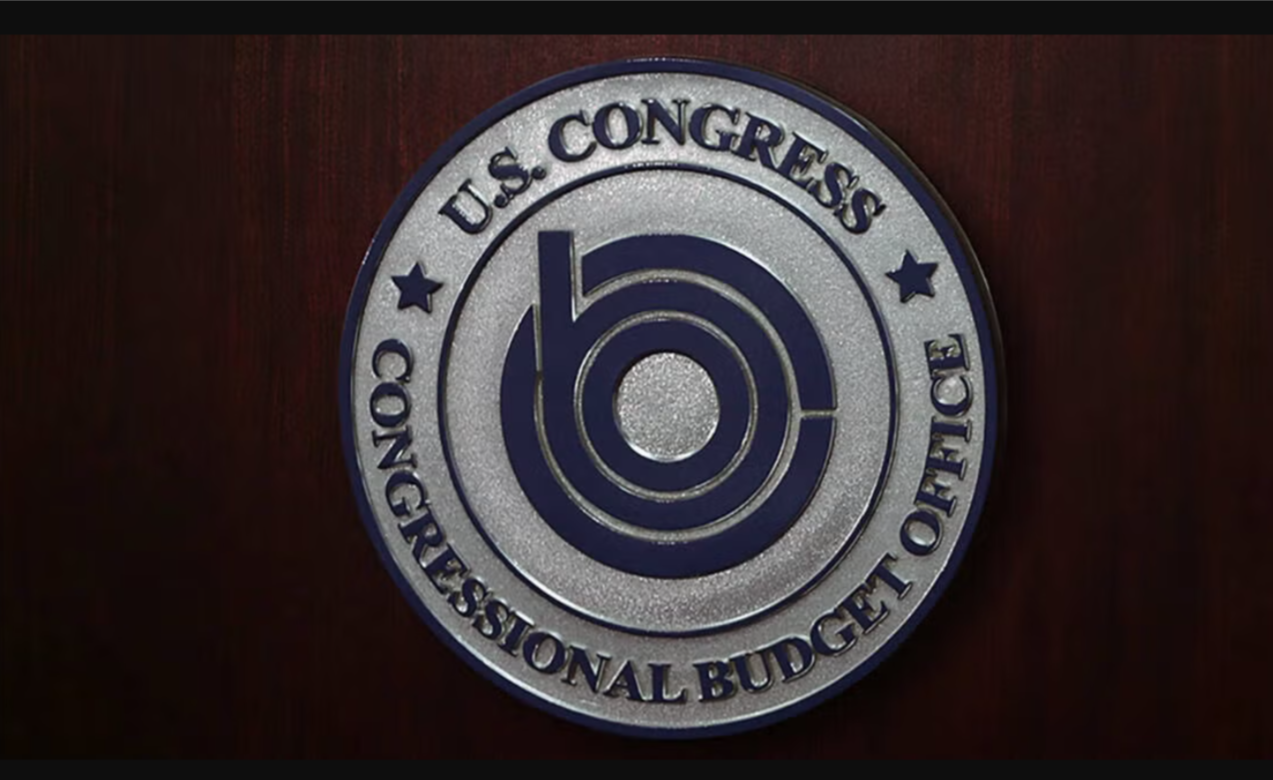(ThyBlackMan.com) There’s something about Barack Obama’s words that still lingers long after he’s left the podium. Maybe it’s the cadence of his voice, or maybe it’s the substance behind the sound bites. Either way, his quotes continue to resonate—especially now, when the world feels like it’s changing faster than we can catch up.
I’ve often found myself going back to his speeches, not out of nostalgia, but because they remind me of what leadership with empathy, clarity, and courage sounds like. His words feel less like political slogans and more like gentle nudges to keep pushing, to keep hoping, to keep doing better—not just for ourselves, but for each other.
Here are eight Barack Obama quotes that I believe still matter. Not because they’re part of history books, but because they continue to speak to our hearts and guide us through complicated times.

1. “The road ahead will be long. Our climb will be steep.”
Context: From his 2008 victory speech in Chicago’s Grant Park, Obama didn’t sugarcoat the journey ahead. While celebrating a monumental win, he reminded Americans that progress would not be instant.
Why It Matters Today:
This quote serves as a sobering reminder that democracy is not a destination—it is a process. It’s easy to be swept up in the euphoria of a political victory, especially one as historic as Obama’s. But with these words, he grounded the moment in realism, signaling that the win was just the beginning, not the end, of the work required.
In 2025, the nation stands at another crossroads. The climb continues: battling voter suppression, addressing environmental emergencies, and healing deep political divides. The temptation to disengage or despair can be overwhelming, especially for younger generations who feel disillusioned by the pace of change. Obama’s words cut through that frustration. They tell us that the difficulty of the task does not diminish its worth—it magnifies it.
Moreover, the metaphor of the climb evokes a communal journey. A steep climb isn’t something done alone—it requires solidarity, support, and sometimes sacrifice. It implies that we move forward not just for ourselves, but for those climbing behind us. Whether it’s advocating for racial justice, defending LGBTQ+ rights, or ensuring accessible education, each generation must take its step forward, knowing that progress demands effort.
Patience, discipline, and courage—these are the tools of the climber. And as Obama so often reminded the nation, we have climbed before. We can do it again.
2. “We are the change we have been waiting for.”
Context: This statement became a signature line during Obama’s 2008 campaign, drawing inspiration from poet June Jordan. It emphasized the agency and power within the American people.
Why It Matters Today:
Few political quotes have aged with such poignancy. In an era defined by misinformation, distrust in institutions, and political polarization, this quote reminds us that agency has not disappeared—it’s just been displaced. It urges citizens to reclaim it.
The brilliance of this quote lies in its quiet challenge. It flips the common narrative that change must come from leaders, parties, or presidents. Instead, it declares that the American people are the ones they’ve been waiting on all along. Not someone in office, not a billionaire philanthropist, not the next social media influencer—but us.
In a time when many feel powerless, especially amid legislative gridlock and social unrest, Obama’s call to action is a profound antidote to despair. He taps into something ancient and true: the most lasting change begins at the grassroots level. Civic engagement, local elections, neighborhood organizing, community support—these aren’t small acts. They are the engines of transformation.
This quote also places accountability in the mirror. It doesn’t let any of us off the hook. It asks: What are you doing to make this better? How are you showing up for your neighbors, your school, your city? As much as it empowers, it also demands.
And for young people watching political chaos unfold, for older citizens wondering if their work still matters—this is a line to hold close. It says: You matter. You are part of the solution. You’ve always been.
3. “The arc of the moral universe may bend toward justice, but it doesn’t bend on its own.”
Context: This paraphrase of Martin Luther King Jr.’s quote became one of Obama’s most often-repeated lines. It encapsulates the balance between optimism and effort.
Why It Matters Today:
This quote is a master class in the philosophy of hope rooted in responsibility. Obama, channeling Dr. King, speaks to the human desire to believe in justice—but he immediately strips away any illusions that justice is automatic. It’s not. It’s deliberate. It’s demanding. And it’s driven by us.
In today’s politically fragmented world, it’s tempting to lean on hope as a passive ideal. But Obama reframes hope as a discipline. It is not enough to believe in a better world; one must labor for it—vote for it, protest for it, legislate for it, educate for it, protect it, and sometimes suffer for it.
This quote carries emotional weight for those on the front lines of activism. It acknowledges that progress is grueling. That bending the arc may take generations. That it may come with loss. But it also affirms that each push, each act of resistance or compassion, is a hand on that arc, tugging it toward justice.
In 2025, when many communities face both old injustices and new forms of disenfranchisement—from AI-driven surveillance to economic inequality—the quote stands like a lighthouse. It doesn’t deny the darkness. It lights the way through it.
It is also a call to intergenerational effort. The arc doesn’t bend in one presidential term or even one lifetime. Every movement—civil rights, labor, women’s suffrage, marriage equality—was the result of many hands, many hearts, over many years. Today’s activists are inheritors of that sacred work. And tomorrow’s will inherit it, too.
This quote doesn’t promise comfort. But it does promise meaning. It says: bend the arc. Even if your hands shake. Even if it bends slowly. Even if it feels invisible. Just keep bending.
4. “If there is anyone out there who still doubts that America is a place where all things are possible… tonight is your answer.”
Context: Spoken during his 2008 presidential victory speech, Obama used this sentence to mark the moment America elected its first Black president.
Why It Matters Today:
This quote is one of the most emotionally charged and historically significant lines in modern American political rhetoric. It echoed through the streets of Chicago that night and continues to reverberate through generations that saw, in Barack Obama, a dream long deferred finally realized. The weight of centuries—of slavery, Jim Crow laws, civil rights marches, and voter suppression—stood behind this statement. But Obama wasn’t just speaking about his victory; he was addressing the soul of a nation.
In today’s political environment, the statement takes on new urgency. Amid attempts to roll back voting rights, rising racial tension, and economic disparity, there is widespread skepticism about whether America still lives up to its founding ideals. Many now wonder: Are all things still possible?
Obama’s words challenge that doubt. They remind us that history is not a straight line, and that moments of regression do not erase moments of progress. The election of the first Black president did not solve America’s racial problems, but it shattered a psychological barrier—it showed what was possible.
For younger generations, especially those born after 2008, this quote may feel like mythology. But it is essential to keep that memory alive. It’s a testament to how votes matter, how coalitions can shift history, and how representation can change the narrative of what’s achievable in America.
In times of despair, it stands as a reminder: don’t lose faith in possibility. Even when change feels distant, history has shown that extraordinary breakthroughs can—and do—happen.
5. “We don’t turn back. We leave no one behind. We pull each other up.”
Context: Delivered during the 2012 Democratic National Convention, this line showcased Obama’s vision of collective responsibility and forward motion.
Why It Matters Today:
This quote is a powerful declaration of values—particularly the kind of moral leadership that is rare in today’s increasingly fragmented political discourse. Obama’s words evoke the language of military camaraderie, civil rights solidarity, and the best traditions of American community.
To “leave no one behind” isn’t just rhetoric—it’s a blueprint for policy, empathy, and unity. Whether dealing with the rising costs of health care, student loan debt, homelessness, or the mental health crisis, Obama’s words demand that we approach these issues not with indifference, but with urgency and compassion.
In 2025, with wealth gaps widening and access to resources still skewed by zip code, race, and income level, this quote becomes a moral compass. It’s a rejection of the ideology that success is only for the privileged few. Obama invites us to reimagine success as something shared. He reinforces the idea that the measure of a just society is how well it cares for its most vulnerable—not just how high its GDP climbs or how well its stock market performs.
The line “we don’t turn back” speaks to resilience. It’s a pledge to not regress—to not undo the hard-earned progress of past generations. It says we move forward with conviction, and we do so together. In times of crisis, it is easier to close doors than to open arms. But this quote insists that inclusion—not isolation—is the American way.
6. “I’m inspired by the people I meet in my travels—hearing their stories, seeing the hardships they overcome, their fundamental optimism and decency.”
Context: Taken from one of Obama’s public remarks reflecting on his presidency and the American people, this quote highlights his admiration for everyday citizens.
Why It Matters Today:
In an era when much of politics has become performative, combative, or transactional, Obama’s words are a refreshing shift in perspective. They elevate the narrative of everyday Americans—people who don’t have massive platforms or policy influence, but whose lives are filled with quiet resilience, dignity, and hope.
This quote reveals a truth about leadership: that its strength comes not from dominance or spectacle, but from listening. Obama made it a point to humanize the American experience—not in abstract numbers or demographic blocks, but through names, faces, and personal stories. He used these stories to guide policy, build empathy, and remind the nation of its shared humanity.
Today, when distrust in government institutions runs deep and disillusionment is high, this quote highlights what’s missing: connection. Leaders who are grounded in the lives of real people, not insulated by political games or elite bubbles, are the ones who can heal and unite.
Furthermore, this quote challenges the broader culture. It asks the media, policymakers, and even voters to stop defining America by its loudest, most divisive voices. Instead, it urges us to recognize the decency that still exists in classrooms, union halls, diners, and barbershops across the country.
The people Obama describes—the optimistic, decent, hardworking citizens—are the heart of the nation. And in recognizing them, we re-center our collective gaze on what truly sustains America: its people, their dreams, and their courage in the face of hardship.
7. “Change will not come if we wait for some other person or some other time.”
Context: This was part of Obama’s call to action during his 2008 campaign, urging people to embrace the urgency of now.
Why It Matters Today:
This quote is perhaps one of the most enduring rallying cries of Obama’s political philosophy. It is not just a critique of complacency—it’s a full-throated rejection of passivity. The line echoes with historical weight, channeling the same urgency that animated movements led by Dr. Martin Luther King Jr., César Chávez, and countless grassroots organizers throughout American history.
In today’s social climate, where systemic issues such as climate change, gun violence, income inequality, and reproductive rights continue to fester, the impulse to delay, delegate, or deflect action has only grown more tempting. It’s easy to fall into the belief that someone more powerful, more educated, or more connected will eventually take care of it.
Obama dismantles that illusion. His words remind us that leadership isn’t confined to the Oval Office—it exists in every community, classroom, and living room. Real, sustainable change comes not from a singular hero but from everyday citizens stepping up with intention and conviction.
Moreover, the quote speaks to time itself as a critical factor. Waiting not only delays progress—it often preserves injustice. Civil rights were not won by spectators. Marriage equality did not emerge from silence. The right to vote wasn’t secured by those sitting on the sidelines. Obama’s quote dares us to stop hoping for a perfect political moment or a charismatic savior. It challenges us to act, here and now, flaws and all.
Whether it’s speaking truth to power in your workplace, organizing within your local school board, or simply choosing to show up when it’s inconvenient—this quote is a daily call to step into the arena. If we don’t, history will be written without us.
8. “I believe in evolution, in change, in growth. I believe that we can constantly remake ourselves to be better people.”
Context: Spoken in various forms throughout Obama’s interviews and town halls, this quote captures a philosophy of personal development.
Why It Matters Today:
Few public figures have articulated the concept of personal growth as fluidly and graciously as Barack Obama. In a world that often reduces people to their worst moments, this quote opens the door to transformation—not just politically, but spiritually and emotionally.
The emphasis on evolution and remaking oneself invites us to embrace imperfection as part of the human condition. In the social media era, where digital footprints last forever and snap judgments are common, there’s little room left for redemption. Obama’s words, however, push against this rigidity. They affirm that humans are capable of learning from failure, apologizing sincerely, and emerging wiser.
For public figures, this quote offers a counterweight to the culture of “cancellation.” For private citizens, it extends grace to oneself. Growth is not weakness; it is strength. Admitting you were wrong, changing your views based on new evidence, or outgrowing environments that no longer serve you—that is evolution in practice.
In classrooms, this message matters. In boardrooms, in churches, in online forums—it matters. Because what it ultimately champions is hope in humanity. It says: You are not your worst decision. You are not frozen in time. You have the capacity to evolve—not just once, but repeatedly.
And in 2025, with the nation still navigating social change, cultural tension, and shifting values, this quote reminds us of something essential: we are all works in progress. And that’s okay. The real failure lies not in making mistakes—but in refusing to grow beyond them.
Obama’s belief in growth is more than inspirational—it’s foundational. It undergirds his politics, his leadership, and his personal journey. And it continues to offer a roadmap for how we might all live with greater compassion—for ourselves, and for each other.
Staff Writer; Jamar Jackson

















Leave a Reply